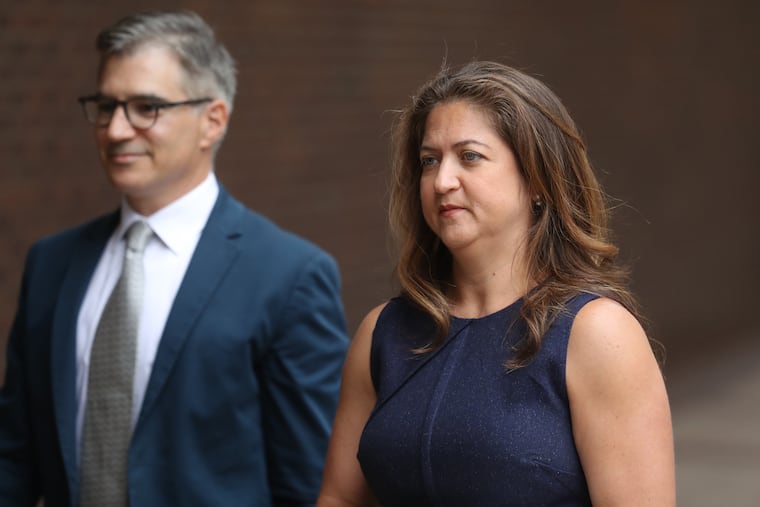Catholic foster care agency loses federal appeal over LGBTQ policy
This is the second legal victory for the city. The case could be appealed to the Supreme Court.

For the second time in two years, a court has ruled that the City of Philadelphia did not violate the religious freedoms of a Catholic social services agency when it severed the organization’s foster-care contract.
The case could be appealed to the U.S. Supreme Court.
The decision by a three-judge panel of the U.S. Court of Appeals for the Third Circuit was released Monday. The panel said the city didn’t target the agency because of its religious beliefs but acted only to enforce its own nondiscrimination policy in the face of what seemed to be a clear violation.
Catholic Social Services (CSS) had said it would not work with LGBTQ parents, which violates the city’s antidiscrimination laws governing organizations that receive public money.
Here’s a look at the case.
How did we get here?
In March 2018, a same-sex couple interested in becoming foster parents said they were turned down by Bethany Christian Services because they were lesbian. An Inquirer story about the incident found that CSS had a similar policy not to work with LGBTQ people. Bethany agreed to change its policy to align with the city’s antidiscrimination rules. CSS did not, and the city ended its foster-care contract.
CSS sued, arguing that the city had violated its religious freedom and put kids in need of a good home in danger. (The agency was one of 30 providing foster care in Philadelphia.)
A federal judge last year upheld the city’s decision. U.S. District Judge Petrese B. Tucker said the Department of Human Services (DHS) had a legitimate interest in ensuring “that the pool of foster parents and resource caregivers is as diverse and broad as the children in need of foster parents."
What the most recent decision means
In reviewing Tucker’s decision, the three-judge panel of the U.S. Court of Appeals for the Third Circuit had to determine whether the city violated the group’s religious freedom when it ceased working with the foster-care agency.
While CSS argued the move was antireligious, the judges wrote that the evidence did not show religious persecution or bias. “Instead it shows so far the city’s good faith in its effort to enforce its laws against discrimination,” the decision said.
Becket, the law firm representing CSS, is reviewing its legal options, said Ryan Colby, its media manager. The next step would be to appeal to the U.S. Supreme Court.
Becket had unsuccessfully asked the Supreme Court to intervene in the case. In a split decision last year, the court denied CSS’s emergency petition to have its foster-care contract reinstated. Justices Clarence Thomas, Samuel A. Alito Jr., and Neil Gorsuch dissented.
How the two sides responded
How does this affect foster kids in Philly?
CSS had argued that by refusing to work with the agency, the city was turning its back on nearly 30 viable foster homes, hurting children in need.
The city has countered that losing CSS as a provider had no negative impact on children. CSS placed about 260 kids in 2017, roughly 2 percent of the total in care in Philadelphia. The city contracts with 29 agencies to license foster care homes for nearly 5,000 children.
A growing issue nationwide
Gay rights and religious freedoms have clashed in similar cases related to child welfare around the country.
In most of those cases, the child-welfare agencies are facing lawsuits for contracting with groups that discriminate. Here, the city was being sued for barring an organization it says discriminates.
In January, the Trump administration granted a waiver to South Carolina, allowing the state to provide federal funding to a foster-care agency that works only with Protestant foster parents. The waiver allows the federally funded Miracle Hill Ministries to continue turning away prospective parents of other religions as well as LGBTQ parents.
(The exemption was needed because of a regulation added under President Barack Obama that prohibits publicly funded foster-care agencies from discriminating against people based on religion, gender identity, or sexual orientation.)
Cathleen Palm, who founded the Center for Children’s Justice, said in January that the Philadelphia case would be one to watch:
“The case could make it to the Supreme Court and really open up the door of evaluating when, and how and if public dollars can be spent on services that are provided within the guise of ‘we only provide these services to certain folks.’”